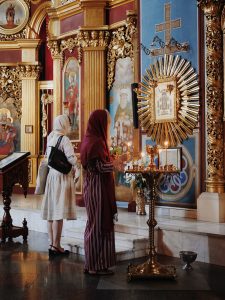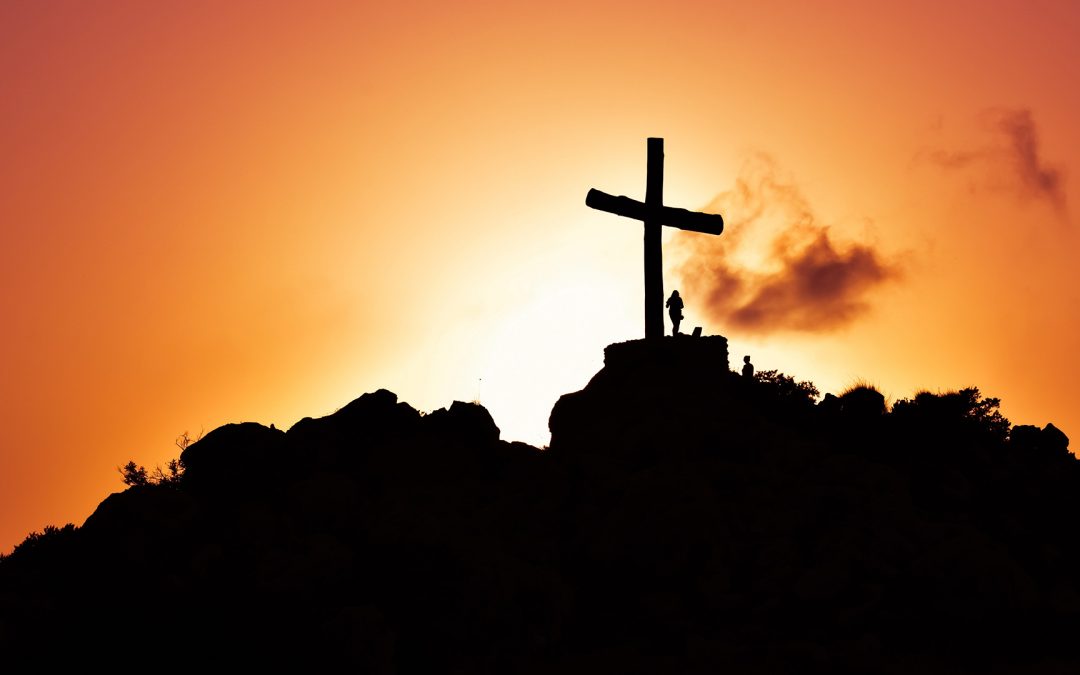Episcopalian vs. Catholicism—Similarities and Differences
However, Episcopalian and Catholicism have major differences that separate the two from each other.
In as much as both denominations are branches of Christianity, there are a few things that they don’t share in common. This applies to certain church traditions, rules, beliefs, and practices.
The Catholic Church is considered the oldest and largest religious institution in the world, and that is one of the reasons why most denominations under Christianity sprang from Catholicism.
Episcopalian and Catholicism share certain similarities and also have differences because the two were once a single unit. Nonetheless, the two groups had religious misunderstandings which led to their split.
Despite having major differences, one can still confuse the two since they can be a bit hard to distinguish, especially if you don’t focus on the key points.
Additionally, Episcopalian and Catholicism have large followership from different parts of the globe, so it is important to know how they differ or compare when it comes to religious beliefs, teachings, and other religious practices.
What Is Episcopalian?
The Episcopalian church is a branch of the Anglican Communion that considers itself both protestant and Catholic.
Moreover, the Anglican Communion has a followership of up to 80 million adherents, making it the third-largest communion in the world after Orthodoxy and Catholicism.
As a religious institution, the history of the Episcopalian church can be traced back to the 16th century when a group of believers split from the Roman Catholic Church to form the Church of England.
 The Episcopalian church is one of the few religious groups in the world that identify as Catholics and Protestants. This makes them unique compared to other religious groups because Catholicism and Protestantism are known to be different.
The Episcopalian church is one of the few religious groups in the world that identify as Catholics and Protestants. This makes them unique compared to other religious groups because Catholicism and Protestantism are known to be different.
Episcopalians split from Catholicism because they felt the Roman Catholic Church was wrong about certain religious practices, teachings, beliefs, and the position of the church in society.
As such, the separation came about as a result of both theological and political differences. Most of the theological issues were raised through Martin Luther’s 95 Theses, which questioned several things about the early Roman Catholic Church.
The Episcopalians were also not happy with some of the rules that the Catholic Church had put in place. In addition to this, the Episcopalian church did not support the idea of celibacy in the Roman Catholic Church.
The two groups had misunderstandings when it comes to the interpretation of the scriptures, the meaning, and purpose for taking certain sacraments, the true meaning of salvation, etc.
When it comes to political differences, the main issue was the hierarchical order of the Roman Catholic Church. To be specific, the Episcopalians did not like how the Roman Catholic Church was being governed.
Aside from that, they did not believe in papal supremacy and had a separate view of how the church should be managed.
The separation of the Church of England, however, mainly occurred because the then King of England, King Henry VIII, had disputes with the leaders of the Catholic Church.
Plus, the Church of England questioned whether spiritual authority should rest with the pope or the king.
The Catholic Church has several traditions that it follows when handling religious matters. On the other hand, Episcopalians are open to new ideas, meaning they can reform should there be a need to do so. And this is why they consider themselves Protestants.
However, Episcopalians still identify as Catholics because they retained most of the liturgical teachings of the Roman Catholic Church.
Episcopalian vs. Catholicism: Similarities
Since the Episcopalian church retained some of the religious teachings and practices from the Roman Catholic church, the two denominations have several similarities as you are about to find out.
1. The Trinity
- Episcopalians and Catholics believe in the trinity, which is the idea that God (the Father), God the Son (Christ Jesus), and God the Holy Spirit are one, but in three distinct persons.
2. Belief in the Incarnation and Resurrection of Jesus Christ
- Catholicism and Episcopalianism teach about the life, death, and resurrection of Christ. Both Christian denominations believe that Jesus ascended into heaven after his resurrection.
- Additionally, both groups not only honor but also follow the teachings of Jesus Christ to the latter. As such, adherents of both churches are encouraged to have Christ-like behavior in and out of the church.
3. Emphasis on Corporate Prayer
- Catholics and Episcopalianians are encouraged to practice liturgical worship when commemorating the holy days on the church calendar.
- Nonetheless, each member of the church is still required to make personal prayers as this brings the individual closer to God and the Church.
4. Veneration of Saints
- Both Episcopalians and Catholics honor those who are considered important in the history of the church.
- Like Catholics, Episcopalians offer some prayers through saints but don’t pray to them. They also honor Mary as the mother of Christ.
- Both religious groups have special days set aside for commemorating saints through various religious rituals and practices.
5. Sacraments
- Members of the Catholic Church and the Episcopalian church both take part in different religious sacraments that are considered important before God and the church.
- However, the teachings and views of each sacrament may vary from one church to another depending on the interpretation of the scripture.
The other similarity that is worth mentioning is that both Catholic and Episcopalian leaders wear special religious attire when attending Mass and other church activities. Also, the robes are often accessorized with symbols that represent the church.
Differences between Episcopalian and Catholicism
As stated earlier, Catholicism and Episcopalianism are somewhat different in that the groups have varying views on certain matters of religion.
This means that the way they do things may differ depending on the laws provided by the church. Here are some of the main differences between Episcopalian and Catholicism.
- Confession of Sins
– Catholicism teaches about the importance of the sacrament of penance, which enables members of the church to confess their sins to priests. Catholics believe that priests can offer prayers on their behalf, thus leading to the forgiveness of sins.
– According to Catholics, the priest can absolve all types of sins, including those that the church considers cardinal.
– Contrarily, Episcopalians believe that sins should be confessed to God and not religious leaders of the church. This can be done through personal prayer.
- Holy Communion
– The Episcopalian church allows everyone who is in attendance to receive the Holy Communion, meaning you don’t have to be a baptized Episcopalian to partake in the communion.
– Catholics, on the other hand, only give the Holy Communion to baptized members of the church. As such, one has to be a catholic first before taking part in this religious sacrament.
- The Use of Birth Control
– The pope and the Catholic Church are against birth control, so members are discouraged from using any birth control method.
On the other hand, the Episcopalians are allowed to safely use birth control without bringing harm to themselves.
- Papal Supremacy
– Like most Christian denominations, Episcopalians don’t believe the pope has universal spiritual authority over the church.
– In fact, the idea of having a pope is one of the main reasons why the Church of England broke away from the Roman Catholic Church. Besides, Episcopalian churches do not operate under central figures of authority.
– Instead, they have cardinals and bishops who are elected by members of the church. In addition to this, members of the Episcopalian church can help the leaders in making decisions.
– Nonetheless, the Catholic Church solely relies on the pope for spiritual guidance. Viewed as the Vicar of Christ, the Catholic Church considers the pope as a unifying link between the adherents and their religious leaders.
– Unlike the Episcopalian church where bishops are elected by members, bishops in the Catholic Church are appointed by the pope.
- Priesthood
-In the Catholic Church, only men are allowed to become priests. Nevertheless, Episcopalian churches in some regions allow women to become bishops and priests, provided that they meet the requirements provided by the church.
-The other difference under priesthood is that Episcopalian priests are allowed to marry while catholic priests are prohibited from marrying. Moreover, the Catholic Church encourages priests to practice celibacy.
Final Verdict
Both Episcopalianism and Catholicism are branches of Christianity. The similarities that they share are a result of the interaction that the two groups had when the Roman Catholic Church was formed.
However, the Catholic Church bases most of its teachings on tradition while Episcopalians are open to new spiritual ideas. As you have seen from the above-listed points, Catholics and Episcopalians differ in several ways, but at the same time, share similarities.
Frequently Asked Questions
Do Episcopalians believe in saints?
Like Catholics, Episcopalians believe in the veneration of saints. As such, the saints are honored and commemorated on special days.
Is Episcopal and Anglican the same thing?
Episcopal churches are subsets of the Anglican Communion.
Do Episcopalians believe in Mary?
Like all Christian denominations in the world, Episcopalians believe Mary is the mother of Jesus Christ. However, they do not worship her in any way. Instead, they honor Mary through prayer.

